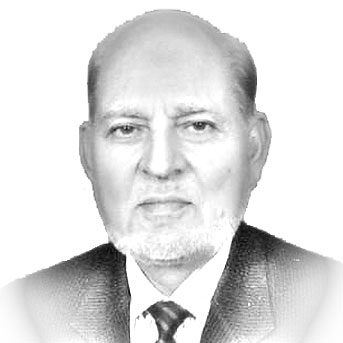Muhammad Hanif
AS published in the UN website, the Human Rights (HR) Day is observed every year on 10 December, the day the United Nations General Assembly adopted, in 1948, the Universal Declaration of Human Rights (UDHR). The UDHR is a milestone document that proclaims the inalienable rights which everyone is entitled to as a human being, regardless of race, colour, religion, sex, language, political or other opinion, national or social origin, property, birth or other status. The UN observes the HR Day on 10 December every year with the aim to engage the general public, its partners and the UN family bolster transformative action and showcase practical and inspirational examples that can contribute to fostering more resilient and just societies. According to the UDHR, the basic human rights are; all human beings are free and equal; no discrimination among human beings; right to life; no slavery; no torture and inhuman treatment; equality before the law; same right to use law; right to be treated fair by the court; no unfair detainment; everybody is innocent unless proved guilty; right to privacy; freedom to movement and residence; right to asylum; right to nationality; right to marry and have family; right to own things; right to freedom of thought and religion; freedom of opinion and expression; right to assemble; right to democracy; right to social security; right to work; right to rest and holiday; right of social service; right to education; right of cultural and art; freedom before the world; subject to law; and that human rights cannot be taken away.
Whereas it is the responsibility of the governments and people of various countries of the world to ensure the observance of the human rights of every human being, the UN is there to oversee and ensure that the human rights are being observed and ensured by the governments and the people in all the states and the violating governments and countries are punished to ensure the compliance. In this context, it is also the responsibility of the UN to ensure that the human rights of the communities of the areas, which have been illegally occupied by some countries, and are struggling for getting their right to self-determination as granted to them by the UNSC vide its resolutions, are also not violated. In this context, people of occupied Jammu and Kashmir (IOK) are an example, who are struggling to get their right to self determination as allowed to them vide resolution 47 of the UNSC passed in 1948/49 and India is suppressing their freedom struggle since 1989, by using above 700,000 troops and in the process its security forces have committed rampant HR violations and atrocities in the illegally occupied part of the Jammu and Kashmir state.
For example, as per Kashmir Media Service (KMS), since 1989, around 100,000 Kashmiris have been killed by Indian occupation forces in the India-occupied Kashmir (IOK). Out of these, more than 7,120 persons have been killed in Indian custody. 109,200 structures have been destroyed. 22,896 women have been widowed, 107,754 children have been orphaned and more than 11,110 women have been raped and gang raped by Indian occupation forces. Indian occupation forces have mass blinded Kashmiri civilians, including youth, women and children, by deliberately targeting the eyes with pellet gun shots. As of January 2019, 8500 Kashmiri youth have been injured due to the deliberate use of Pellet Gunshots. Of these, 207 have been blinded in one eye, while 130 have been made totally blind. Crossing all the limits, on August 5, 2019, the Modi government abrogated Articles 35-A and 370 of India’s Constitution and took away the autonomy of Jammu and Kashmir; dividing the State into two Union territories. By doing this, India has converted a UNSC declared disputed territory between Pakistan and India, into its integral part, which is a gross violation of the human rights. To pre-empt Kashmiris’ reaction, while India has increased its security forces number to 900,000, it has clamped lockdown/curfew in the Kashmir valley, and telephone/internet services in the area are also blocked. India has also apprehended/ jailed all the Kashmiri leaders/youth and the Indian forces are carrying out genocide of the Kashmiris by killing the young men and boys through fake encounters.
The Indian HR violations and atrocities are widely acknowledged by the international community, media and HR organizations. The Office of the High Commissioner on Human Rights (OHCHR) had also published its first ever report on Kashmir on June 2019, documenting gross human rights violations in the IoK, including the excessive use of force, arbitrary arrests, detentions and disappearances and cases of mass graves. The above discussion leaves no doubt regarding HR violations and atrocities being committed in the IoK by the Indian security forces with total impunity granted by the State. Although the world has acknowledged these violations, India continues to kill the Kashmiris without any hesitance. Therefore, at the occasion of the Human Rights Day, it is important that the UN takes notice of the HR violations and atrocities being committed by the Indian forces in the IoK and the UNSC should constrain India, through a binding resolution to end the atrocities in the State and resolve the Kashmir dispute through a plebiscite or a dialogue with Pakistan.
—The writer is an ex-Army Colonel and Senior Research Fellow, Strategic Vision Institute, Islamabad.










